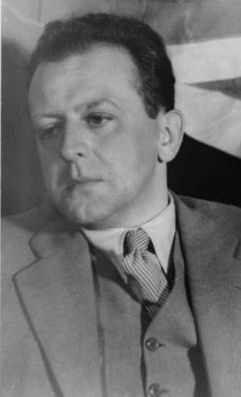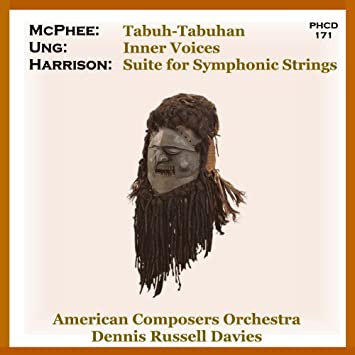
McPhee, Colin
Born in Montreal in 1901, McPhee received a typical East Coast education for the time, studying in Montreal and Toronto, at the Peabody Conservatory in Baltimore and in Paris. He settled in the United States in 1926, and became active in the New York new music scene, writing first in a Neo-c1assical style. Varese and the machine age soon motivated him to make his rhythms more complex, his harmonies more dissonant and his instrumentation more clangorous. Then, around 1930, McPhee heard a French recording of a Balinese gamelan, and the sound of its gongs and bells ensnared him. In 1930, he married Jane Belo, a young student of ethnology from a well-to-do family, and by 1933, they were off to Bali, They had intended upon a two- week holiday but stayed several years. While there, McPhee formed a gamelan, learning to play each instrument and becoming the first Westerner to take up the study of this music seriously. He discovered that one possible tuning is the one we have for our piano, and he used this to transcribe Balinese melodies for two pianos after he got back (and which Benjamin Britten enjoyed playing with McPhee). Fearing the threat of war, and without income following his divorce from Belo, McPhee left Bali in 1937.
But Bali never left him. His music and life remained haunted by the island. Back in the U.S., he found remarkable ways to make Western instruments imitate the sound of a gamelan, and he combined traditional Balinese melodies and rhythms with his own innovations and with Western forms. He lived, however, in physical pain as a lingering result of a malaria he had caught in Bali. And he suffered an equally painful creative crisis in his last years, unable to develop any style of music that wasn’t Balinese, yet feeling pressure, nonetheless, to conform to the European tradition. In 1964, he died an alcoholic who had thought himself a failure. Ironically, though, that was just about the time of the early experiments in Minimalism, which was influenced by Asian musical techniques and which became one of the most important and lasting musical styles of the late twentieth century, McPhee was, in fact, a prophetic musician; and Tabuh-Tabuhan, his first orchestral piece to incorporate Balinese music, a ground-breaking score. He began it while on a brief “vacation” from Bali in 1935, at the suggestion of Carlos Chavez, the Mexican composer himself noted for the inclusion of Indian elements in his scores, Chavez led the premiere in Mexico City with his Orquestra Sinfonica de Mexico in the summer of 1936.
